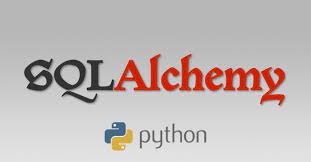Creating a comprehensive SQLAlchemy a real project that covers a wide range of concepts and best practices. Here’s a project idea that can help you cover important aspects of SQLAlchemy:
Project: Library Management System
Description:
In this project, you’ll build a library management system using SQLAlchemy and Python. This project will cover various SQLAlchemy features, including defining models, creating database tables, querying data, relationships, and more. Here are the key features of the project:
- Database Setup:
- Create a SQLite database using SQLAlchemy.
- Define two main tables:
BooksandAuthors.
- Models:
- Create SQLAlchemy models for
BookandAuthor. - Establish a many-to-many relationship between books and authors since one book can have multiple authors, and one author can write multiple books.
- CRUD Operations:
- Implement functionality to:
- Add new books and authors to the database.
- Update book details.
- Delete books and authors.
- List all books and authors.
- Search and Filtering:
- Add the ability to search for books by title, author name, or publication year.
- Implement filtering options, such as listing all books by a specific author.
- Validation and Error Handling:
- Implement validation for input data, ensuring data integrity.
- Handle errors gracefully, providing informative error messages.
- User Interface (Optional):
- Create a simple command-line or web-based user interface to interact with the database.
- Testing:
- Write unit tests to validate the functionality of your SQLAlchemy models and operations.
- Documentation:
- Provide thorough documentation and comments in your code to explain the SQLAlchemy concepts you’re using.
By working on this project, you can cover various essential SQLAlchemy topics, such as defining models, creating tables, establishing relationships, querying data, and performing CRUD operations. You can also explore more advanced features like transactions, database migrations, and optimization as you progress.
Certainly! Let’s break down each step of the Library Management System project using SQLAlchemy and Python in detail:
1. Database Setup:
- Begin by creating a SQLite database using SQLAlchemy. You can use the
create_enginefunction to establish a connection to the database.
from sqlalchemy import create_engine
# Create a SQLite database
engine = create_engine('sqlite:///library.db')2. Models:
- Define SQLAlchemy models for the
BookandAuthortables. Use thedeclarative_baseclass to create your base class for model definitions.
from sqlalchemy.ext.declarative import declarative_base
from sqlalchemy import Column, Integer, String, ForeignKey, Table
from sqlalchemy.orm import relationship
Base = declarative_base()
class Author(Base):
__tablename__ = 'authors'
id = Column(Integer, primary_key=True)
name = Column(String)
# Define a relationship with books
books = relationship('Book', secondary='book_author')
class Book(Base):
__tablename__ = 'books'
id = Column(Integer, primary_key=True)
title = Column(String)
publication_year = Column(Integer)
# Define a many-to-many relationship table
book_author = Table('book_author', Base.metadata,
Column('book_id', Integer, ForeignKey('books.id')),
Column('author_id', Integer, ForeignKey('authors.id'))
)3. CRUD Operations:
- Implement functionality to perform CRUD (Create, Read, Update, Delete) operations for books and authors. Here are some code snippets as examples:
- Adding a new book:
def add_book(session, title, publication_year):
new_book = Book(title=title, publication_year=publication_year)
session.add(new_book)
session.commit()- Updating book details:
def update_book(session, book_id, new_title, new_publication_year):
book = session.query(Book).filter_by(id=book_id).first()
if book:
book.title = new_title
book.publication_year = new_publication_year
session.commit()- Deleting a book:
def delete_book(session, book_id):
book = session.query(Book).filter_by(id=book_id).first()
if book:
session.delete(book)
session.commit()4. Search and Filtering:
- Implement search and filtering functionality to find books by title, author name, or publication year. You can use SQLAlchemy’s querying capabilities for this.
def search_books(session, query):
results = session.query(Book).filter(
(Book.title.like(f'%{query}%')) |
(Book.publication_year == query) |
(Book.authors.any(Author.name.like(f'%{query}%')))
).all()
return results5. Validation and Error Handling:
- Add validation to ensure that data entered into the database is valid. You can use SQLAlchemy’s validation features, as well as standard Python error handling techniques to handle exceptions.
6. User Interface (Optional):
- Create a simple user interface for interacting with your library management system. You can use libraries like Flask for a web-based interface or libraries like
input()andprint()for a command-line interface.
7. Testing:
- Write unit tests to verify the correctness of your CRUD operations and other functions. You can use Python’s
unittestframework or libraries likepytestfor testing.
8. Documentation:
- Document your code thoroughly, including comments and explanations of key SQLAlchemy concepts you’ve used.
Certainly! Here’s an example of how to implement a simplified version of the Library Management System using SQLAlchemy and Python. This version includes the essential steps but omits some advanced features for brevity:
from sqlalchemy import create_engine, Column, Integer, String, ForeignKey
from sqlalchemy.orm import sessionmaker, relationship
from sqlalchemy.ext.declarative import declarative_base
# Step 1: Database Setup
engine = create_engine('sqlite:///library.db')
Base = declarative_base()
Session = sessionmaker(bind=engine)
session = Session()
# Step 2: Models
class Author(Base):
__tablename__ = 'authors'
id = Column(Integer, primary_key=True)
name = Column(String)
books = relationship('Book', back_populates='author')
class Book(Base):
__tablename__ = 'books'
id = Column(Integer, primary_key=True)
title = Column(String)
publication_year = Column(Integer)
author_id = Column(Integer, ForeignKey('authors.id'))
author = relationship('Author', back_populates='books')
# Step 3: CRUD Operations
def add_book(title, publication_year, author_name):
author = session.query(Author).filter_by(name=author_name).first()
if not author:
author = Author(name=author_name)
new_book = Book(title=title, publication_year=publication_year, author=author)
session.add(new_book)
session.commit()
def list_books():
books = session.query(Book).all()
for book in books:
print(f'Title: {book.title}, Author: {book.author.name}, Year: {book.publication_year}')
# Step 4: Main Program
if __name__ == "__main__":
Base.metadata.create_all(engine)
while True:
print("\nLibrary Management System")
print("1. Add Book")
print("2. List Books")
print("3. Exit")
choice = input("Enter your choice: ")
if choice == "1":
title = input("Enter book title: ")
publication_year = int(input("Enter publication year: "))
author_name = input("Enter author name: ")
add_book(title, publication_year, author_name)
print("Book added successfully!")
elif choice == "2":
list_books()
elif choice == "3":
break
session.close()In this simplified version:
- We create a SQLite database and define two tables:
booksandauthors. - We implement basic CRUD operations to add books and list books, including handling author information.
- The main program provides a simple command-line interface for the user to interact with the system.
This code provides a starting point for understanding SQLAlchemy’s essential concepts and how to use them to build a basic library management system. You can expand upon this foundation by adding more features and improvements as needed.

